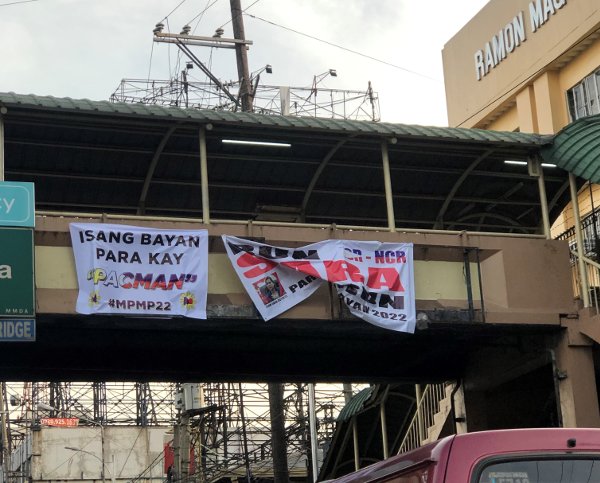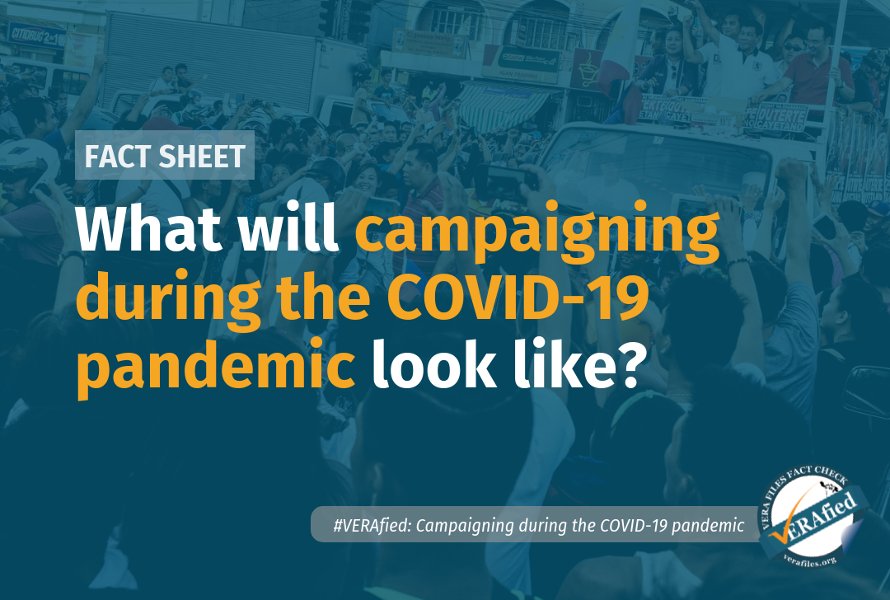Incumbent legislators would do the country a great service if they seriously take a closer look at a provision in Republic Act (RA) 9369 that rendered premature campaigning a thing of the past.
Less than eight months before the filing of certificates of candidacy for the May 9, 2022 elections, we’re seeing more tarpaulins and posters of prospective candidates, bearing slogans they will most probably use in their 2022 campaign.
The tarps and posters in varying sizes and colors are eyesores, especially on major roads, but there’s no law that prohibits having those even in public spaces. That’s because premature campaigning has ceased to be unlawful.
Many politicians are able to skirt around the law and advertise themselves long before the election period, courtesy of Section 13 of RA 9389 that said a person can be considered as a candidate for a political position only at the start of the campaign period for which he filed his certificate of candidacy.
Therefore, the local legislator, whose posters are in almost every post at three- to five-meter intervals of one another along the Balagtas bypass road that traverses several towns in Bulacan, is not violating the law on campaigning.
Those banners, bearing the moniker of a boxing champ and a mayor from a faraway city in the south, that are hanging on pedestrian overpasses on EDSA and other major thoroughfares, are not violating any law on early campaigning.
At present, politicians can be held liable for election offenses only after the start of the campaign period. Even after filing their certificates of candidacy from October 1 to 8 for next year’s elections, they will be considered to be candidates only at the start of the campaign period: Feb. 8, 2022 for president, vice president, senators and party-list groups; March 25, 2022 for district representatives, governors and other provincial, city and town officials.
RA 9389 amended RA 8436 or the law that provided for the automation of elections in 1998.
Twenty-three years since the law was enacted and 12 years after the Supreme Court upheld its legality in its 2009 ruling on the landmark case involving Rosalinda Penera, a candidate for town mayor of Sta. Monica, Surigao del Norte, it is about time we revisit the law that blurred the definition of premature campaigning.
Primarily, it gives undue advantage to incumbents and moneyed politicians, who have access to government resources, the mainstream media and social media platforms.
Before former senator Miriam Defensor-Santiago died of cancer in 2016, she was pushing a bill that sought to curb premature campaigning, among several electoral reform measures she wanted Congress to enact.
Legislators may want to review Senate Bill 3305, which provides for the filing of a certificate of intention to run for public office (CIRPO) not later than 180 days prior to the filing of a certificate of candidacy (CoC). The CIRPO would be a requirement for the filing of a CoC.
Once a CIRPO is filed, the aspirant would be prohibited from endorsing any product or service, whether for a fee or not; appear in any infomercial; be employed in media as news anchor, writer or talent; or buy any advertising time or space for any product or service.
This is a sound measure to level the playing field between rich and poor candidates. It will also prevent, or at least reduce, opportunities in which incumbents take advantage of their positions to promote themselves, using their office and other public resources to advance their partisan agenda.
If they really want meaningful reforms in the political landscape, legislators could do so given the time left before they adjourn for the campaign period.
However, the chances for the enactment of electoral reforms are little, particularly when a measure would limit the incumbents’ privileges and advantages over their potential rivals. What we ordinary mortals can do is to exercise discernment in choosing good leaders on the basis of performance record, honesty and commitment to serve over popularity.
Voter education is indeed the key to have good leaders, who can truly be public servants.
We have to make sure that every voter understands and recognizes his voting power; make sure that every voter is ready, willing and able to participate in the electoral processes.
Our electoral processes and systems are far from being ideal or perfect. But no matter how imperfect they are, it is still upon us voters to use our voting power judiciously and conscientiously.
Candidates who take advantage of situations to market themselves way ahead of the election period must be the first to be kept out of our ballots. If they can take advantage of the time for selfish, partisan ends, chances are big that they will do worse once they’re elected.
The views in this column are those of the author and do not necessarily reflect the views of VERA Files.
This column also appeared in The Manila Times.

